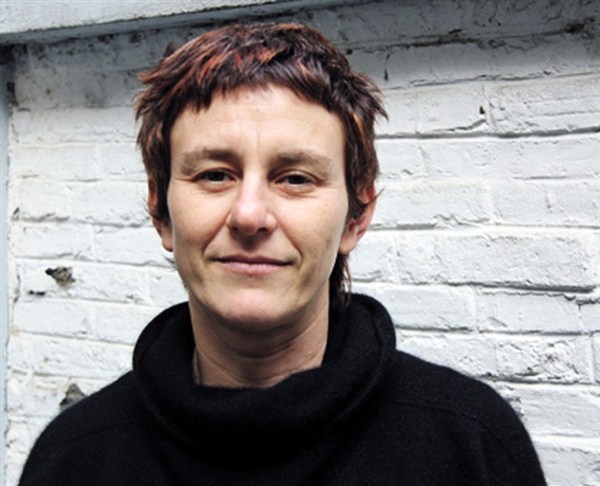
今日上海
- 2014年05月05日
Author sees Shanghai as a force of change in the future

SINCE Anna Greenspan came to Shanghai 12 years ago, she spent years roaming the streets and alleyways, exploring its different neighbors.
The professor of urbanism and digital culture at New York University Shanghai then encountered with a number of questions in the city’s highly accelerated and intense process of urbanization.
She maps the city’s future in her new book “Shanghai Future: Modernity Remade.”
Though Shanghai is already the major economic hub, Greenspan sees its ambition to go far beyond occupying a position similar to London or New York in 19th and 20th centuries. Shanghai, the “metropolis of the future,” will reshape the concept of modernity unprecedentedly and unanticipated.
Greenspan was invited during 2014 Shanghai Literary Festival and able to answer some of the questions via e-mail.
Q: What is your main challenge of writing this book?
A: The main challenges are the same challenges that come from living in and among China’s massive, high speed and urban transformation.
Q: Can you elaborate the idea in your book that the development of Shanghai’s future is like a time spiral?
A: I came to the subject of urbanism as a philosopher interested in ideas about time. One of the main issues of my book is how contemporary Shanghai is reinventing our conceptions of modernity and of the future.
The notion of a temporal spiral is intriguing because it escapes from a familiar duality that has haunted Chinese modernity; that is, the idea of a cyclical, traditional time that must be discarded in favor of a linear, progressive time that is inherited from the West.
Q: Do you regard “old Shanghai” or its 1920s and 30s as the golden age? Why?
A: I am not a historian, so my attention to the 1920s and 30s is not as a historical period per se. Rather, I am intrigued by how this epoch is constantly re-imagined and re-invented in contemporary Shanghai.
Shanghai’s futurism is all about looking back, not because of a nostalgia but, rather, because the past is itself thought of as being futuristic.
Q: How do you think haipai (Shanghai style) culture will develop?
A: One of the main reasons that we may say the 1920 and 30s was Shanghai’s golden age is that the city developed a distinct culture at that time, haipai, which filtered through music, theatre, design, fashion, etc ... Shanghai’s ambitions to become “the city of the 21st century” involves just such a cultural flourishing; the invention of a neo-haipai.
Q: Is there any change in Shanghai that comes with mass urbanization and industrialization that let you feel disappointed?
A: I love street life and street markets and it saddens me that so much of that has disappeared since I have been here. I very much hope that baozi (buns) stands and bing (pancake) sellers are as much a part of Shanghai’s future as glossy malls selling Prada and Gucci.
Q: After spending so many years in Shanghai, what still seems weird to you?
A: One of the great things about living here is that so much still seems weird. Partly this is because the city is so large. A mega-city like Shanghai sometimes seems to contain the universe. This is amplified by the fact that things here are in a constant state of transformation.
Q: As a professor of NYU Shanghai, how are the courses going and what’s your opinion of Chinese college students compared to foreign young generation?
A: NYU has only just started admitting local Chinese students and I have only taught a handful so far. I am very interested in different educational styles between China and North America. This is a topic I have written about in various places and my own children go to a local elementary school. I am looking forward to learning more about how these differences play out in the realm of higher education.
Q: What was your impression before and after coming to Shanghai?
A: Before I came, I knew little about the city and thought that it would be a more extreme Hong Kong, a kind of “Wild West” that was very intense. What surprised me was how livable Shanghai is, with its leafy quiet streets, neighborhood parks, lilong life, coffee shops etc ... This isn’t what brought me to Shanghai, but it is why I stayed.

